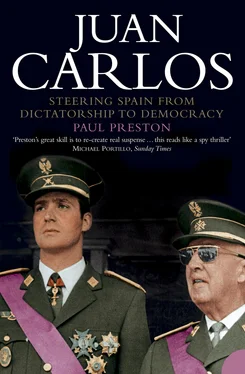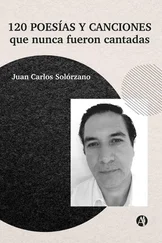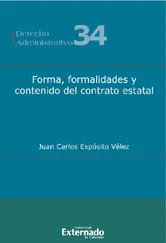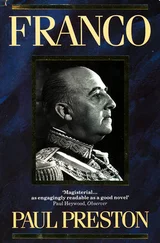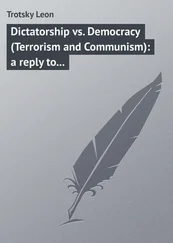1 ...7 8 9 11 12 13 ...40 Franco’s anger at the monarchist enthusiasm generated by Don Juan’s arrival in Portugal continued to fester. He sent a note to Don Juan breaking off relations between them on the grounds that he had given his permission only for the Pretender to make a two-week visit to Portugal, yet he and his Privy Council were fomenting monarchist conspiracy against him. Franco acted out of pique, but there was a strong element of calculation in his reaction. The more daring monarchists now began to seek contacts on the left but many of the more opportunistic conservatives who had signed the letter welcoming Don Juan scuttled back to Franco. 83 In response, at the end of February 1946, Don Juan attempted to woo a broad spectrum of Spanish opinion, including the ultra-conservative Carlists, by issuing another manifesto, known as the Bases de Estoril . It was a draft constitution for the monarchy and contrasted with the earlier Lausanne Manifesto in promising a brand of Catholic corporatism. The Bases de Estoril did not succeed in convincing the Carlists, but the document did antagonize his more liberal supporters. 84
In fact, all was not well within Don Juan’s camp. Vegas Latapié tended to place considerable hopes on Allied intervention to restore the monarchy. On 4 March 1946, a Tripartite Declaration of the United States, Great Britain and France announced that: ‘As long as General Franco continues in control of Spain, the Spanish people cannot anticipate full and cordial association with those nations of the world which have, by common effort, brought defeat to German Nazism and Italian Fascism, which aided the present Spanish regime in its rise to power and after which the regime was patterned.’ Pedro Sainz Rodríguez, however, argued vehemently that the real significance of the Declaration lay in the statement that: ‘There is no intention of interfering in the internal affairs of Spain. The Spanish people themselves must in the long run work out their own destiny.’ Sainz Rodríguez would argue, against the views of Vegas Latapié and Gil Robles, that Don Juan must seek some rapprochement with the Caudillo. 85
Don Juan was sufficiently concerned by the hostility emanating from Franco and the Falange to instruct Juan Carlos’s teachers at Ville Saint-Jean to destroy any gifts of sweets, chocolates and other delicacies sent to the Prince by well-wishers, for fear of attempts to poison him. Eventually, Don Juan became uneasy about Juan Carlos being left alone in Switzerland and finally, in April 1946, called for his son to rejoin the family at Estoril. It opened a brief period of relative normality, with the boy able to attend a local school, the Colegio Amor de Deus . He made many friends and could spend time with his family and pursuing hobbies like horse-riding, sailing and football. 86 Juan Carlos’s education at Estoril remained under the overall supervision of Vegas Latapié. In spite of his tutor’s rigid conservatism and insistence on discipline and formality, the young Prince became increasingly attached to him, later describing him as ‘a wonderful man’. According to Juan Carlos, Vegas Latapié believed that the heir to the throne: ‘should be educated with no concession to the weaknesses that seem normal to commoners. Accordingly, he brought me up to understand that I was a being apart, with many more duties and responsibilities than anyone else.’ 87
In early December 1946, the United Nations denounced the Axis links of Franco and invited him to ‘surrender the powers of government’. It was highly unlikely that there would be any Allied intervention against the Caudillo, but Franco responded as if there was such a threat by mounting a massively orchestrated popular demonstration in the Plaza de Oriente on 9 December. On 12 December, a plenary session of the General Assembly resolved to exclude Spain from all its dependent bodies, called upon the Security Council to study measures to be adopted if, within a reasonable time, Spain still had a government lacking popular consent; and called on all member nations to withdraw their ambassadors. 88 At the cabinet meeting on 13 December, Franco crowed that the United Nations was ‘fatally wounded’. 89
Nevertheless, Franco put considerable effort into making his regime more acceptable to the Western democracies. On 31 December 1946, Captain Carrero Blanco drafted a memorandum urging Franco to institutionalize his regime as a monarchy and then give it the veneer of ‘democratic’ legitimacy with a referendum. Building on the ideas first discussed in cabinet in April 1945, it was clearly an attempt to counter the threat of Don Juan as perceived by Franco. There could be no other interpretation to the central argument that the ‘personal deficiencies’ of any hereditary monarch could be neutralized by Franco remaining as Head of State and the King being subject to the advice of his vacuous consultative body, the Consejo del Reino , made up of loyal nominees of Franco. The Caudillo knew that an even simpler solution was never to restore the monarchy in his lifetime. Carrero Blanco’s memorandum was thus refined further in another working paper presented on 22 March 1947, which suggested that Franco name his own royal successor. 90
Franco quickly implemented Carrero Blanco’s plans to give his regime the trappings of acceptability. Carrero Blanco’s ideas formed the basis of a draft text of the Ley de Sucesión (Law of Succession) and were discussed in a cabinet meeting on 28 March 1947. The first Article declared that: ‘Spain, as a political unit, is a Catholic, social and representative state which, in keeping with her tradition, declares herself constituted as a kingdom.’ The second Article declared that: ‘The Head of State is the Caudillo of Spain and of the Crusade, Generalísimo of the Armed Forces, Don Francisco Franco Bahamonde.’ 91 The regime’s Axis connections would simply be painted over with a monarchist veneer. The declaration that Franco would govern until prevented by death or incapacity, the Caudillo’s right to name his own royal successor, the deafening silence on the royal family’s rights of dynastic succession, the statement that the future King must uphold the fundamental laws of the regime and could be removed if he departed from them – all this showed that only the label had changed.
This elaborate deception aimed to buy time from both the Western Allies and monarchists inside Spain. Its success was dependent upon Don Juan speaking the right lines and not denouncing it. That part of the show was handled with notable clumsiness. On the day before the Ley de Sucesión was to be made public, Carrero Blanco arrived in Estoril. He carried an emolient message to Don Juan, implying that if he identified himself with the regime and were patient, he could be Franco’s heir. Carrero Blanco had been ordered by Franco to seek an audience for precisely 31 March, in order to deny Don Juan the possibility of doing anything to impede the project that was to be announced that evening. Believing that he was being consulted about a draft, Don Juan candidly told Carrero Blanco that Franco could hardly pretend to be the restorer of the monarchy when he was prohibiting monarchist activities. Regarding the issue of his identification with the regime, he told Franco’s emissary of his determination to be King of all Spaniards. This stung Carrero into a blunt statement of the Francoist view of politics: ‘In Spain in 1936 a trench was dug; and you are either on this side of the trench or else on the other … You should think about the fact that you can be King of Spain but only of the Spain of the Movimiento Nacional : Catholic, anti-Communist, anti-liberal and fiercely free of any foreign influence in its policies.’ 92 As he took his farewell, Carrero Blanco said nothing when Don Juan promised to read the text of the Ley de Sucesión and give him his opinion the next day.
Читать дальше
